Are you a Quiet Speculation member?
If not, now is a perfect time to join up! Our powerful tools, breaking-news analysis, and exclusive Discord channel will make sure you stay up to date and ahead of the curve.
Hi!
This is my first time writing an article for QS, but you've likely seen me around on the forums where I'm one of the administrators. I've been playing Magic since December '97, when I learned the game from two guys who mostly traded and who would certainly be considered sharks these days. I took over some of their habits and became an avid trader and have remained in touch with the Magic market ever since.
If you'd like a little more on my history I recommend checking out the forum topic in which I introduce myself (make sure to read the later posts too for the full story).
I decided to write this article as I found myself regularly recommending people to look for their own niche in Magic finance. A niche is a distinct segment of the market that suits your particular goals or expertise well---signed cards, for example. Today I'll talk about niches and why finding one is beneficial to you.
The Value of a Niche
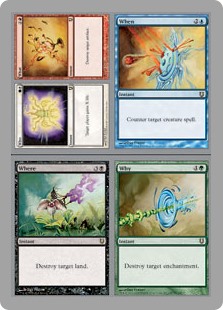 There are about 16,000 unique Magic cards. Many of them have been printed in multiple languages, different sets, and in foil. Cards can have different conditions, be signed or misprinted. Some people have very particular tastes, caring for nicely-centered holograms, foil lines or cards that were never officially released. Do you know the price for all possible combinations of characteristics?
There are about 16,000 unique Magic cards. Many of them have been printed in multiple languages, different sets, and in foil. Cards can have different conditions, be signed or misprinted. Some people have very particular tastes, caring for nicely-centered holograms, foil lines or cards that were never officially released. Do you know the price for all possible combinations of characteristics?
Most likely not. Likely you know about the cards most commonly seen in binders. There is nothing wrong with that, but remember---the next guy knows this stuff too.
When everybody is targeting the same cards, you are actively competing with each other and nobody is likely to get a good deal. Some still manage to make this work for them; I have chosen to take a different approach.
I have managed to find myself several niches that work together synergistically. It's not uncommon for people to approach me to make the specific kind of deals I offer. I know exactly what I need to value cards at when I buy or trade to make my setup work and I know how much time I can expect to spend on it. I can freely choose to ignore other parts of Magic. How did I get here, though?
An Example: My Niches
![]() I know the range of my Magic knowledge. I know about old cards and grading them. I'm a casual player and understand the casual mindset. I have an excellent memory and I'm good at dealing with people, so I can both value collections accurately and negotiate well. These are my strengths.
I know the range of my Magic knowledge. I know about old cards and grading them. I'm a casual player and understand the casual mindset. I have an excellent memory and I'm good at dealing with people, so I can both value collections accurately and negotiate well. These are my strengths.
I know the limits of my Magic knowledge too. I just don't have the time to keep up with recent releases. If I pick up recent cards they'd better come cheap, as I know I won't be likely to move them before rotation when they take a deep dive. I've never cared for foils or misprints or pretty much anything besides regular English and non-foil. These are (some of) my weaknesses.
Given my characteristics, and after researching the market a bit, I've chosen to focus my Magic dealings on bulk rares, collections and the occasional older card that holds interest from the casual perspective. I have found myself a good shop to deal with that gives me a good-to-amazing price on just about anything if I am willing to take credit, and a pretty decent price in cash.
As an avid collector I'm already looking to pick up a lot of cards. Trading for them at bulk is just about the cheapest way to do this, with the one exception of taking them from the collections I buy. Anything I don't want from these large-scale deals I can trade in for cards I want. The casual player in me loves having a lot of cards to choose from and is glad to pick up those occasional casual gems. Finally, the trader in me can see the long-term gains accumulating, so he's happy to work together with the collector and player. It's not perfect synergy I suppose, but it works well for me.
Finding the Right Niche for You
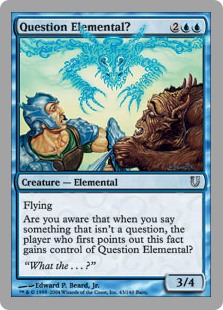 Everybody has strengths and weaknesses when it comes to trading Magic cards. Spend some time to list yours. What are you particularly good at? What do traders ask you for specifically? What are you interested in? Which markets do you know better than other people? Do you have a large budget or more time? Et cetera. Just write down whatever comes to mind and take your time. It might help to get a friend's input too, if they know you and your preferences well enough.
Everybody has strengths and weaknesses when it comes to trading Magic cards. Spend some time to list yours. What are you particularly good at? What do traders ask you for specifically? What are you interested in? Which markets do you know better than other people? Do you have a large budget or more time? Et cetera. Just write down whatever comes to mind and take your time. It might help to get a friend's input too, if they know you and your preferences well enough.
Take a little time to reflect on the list you've come up with. Maybe you can already see a niche shaping up. Regardless, it's important to think about your weaknesses too, so let's make another list.
Take your time and be honest with yourself. Is your time limited? Are you bad at certain formats? Are there particular groups of cards you know little about? In which areas of MTG finance have you failed in the past? Et cetera. Again help could be welcome, but make sure to ask someone who will be honest with you and knows enough about you.
What you want to do now is review the two lists and look for synergy. For example, if your time is limited, what are you good at that requires little time? You can probably find a few areas that work particularly well for you.
Finally, think about the competition in your area. What niche is open or unclaimed? Is there a particular category of cards or role in the marketplace that you can become the go-to guy or girl for?
Hopefully this exercise helps you zero in on a viable niche. But there's a good chance you've identified competition in your chosen areas---quite possibly competition with more experience and/or greater resources. Magic has, after all, been around for a long time and it attracts smart people. Chances are you won't find a unique niche on the first try.
In this case it's time to change perspective. What is lacking in your local area? Does anybody have the foil market cornered? How about casual? Collections, sealed product, bulk? Or, if everything is covered, which competitor is the weakest link? Talking with the community about what's lacking can be beneficial here, too. Market research is sometimes as easy as heading down to your local game store and getting the pulse of players.
Of course you can't just blindly go for whatever market seems open at first glance or suits your fancy. But knowing your own strengths and weaknesses gives you a starting point to look for a good match. If you do find something that works, the rewards can be huge. Being indispensable to a specific market carries obvious competitive advantages.
The Online Market
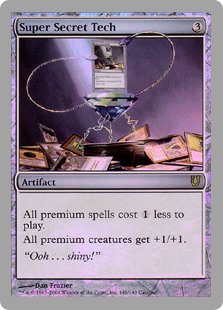 Still no luck? Perhaps your local area is dense with well-established traders and competition is tough for just about every market. Or perhaps some markets just don't exist in your area.
Still no luck? Perhaps your local area is dense with well-established traders and competition is tough for just about every market. Or perhaps some markets just don't exist in your area.
Fortunately we're not limited to local markets. In the case of my financial dealings, in fact, I barely interact with my local market at all.
Online trading is common. Shipping costs can be annoying, but many still manage to make it work for them. Are there any online platforms you like to use? Is a certain market on that site underrepresented? Are there other platforms where you might be able to do something that matches your strengths? Can you leverage an arbitrage opportunity between different platforms?
Many people make an online-only approach work for them. As I said above, this includes me.
Good Luck!
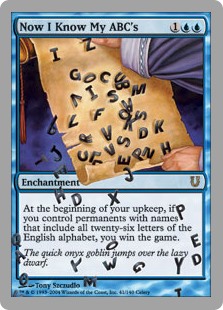 Ultimately, you know your abilities and the opportunities available to you better than I do. Hopefully this article has given you some things to think about when trying to identify that niche.
Ultimately, you know your abilities and the opportunities available to you better than I do. Hopefully this article has given you some things to think about when trying to identify that niche.
If you have any questions about this whole process, or would like to know more about my personal trajectory, ask in the comments. Otherwise good luck, and may you find the perfect niche for you!
Thanks for reading.


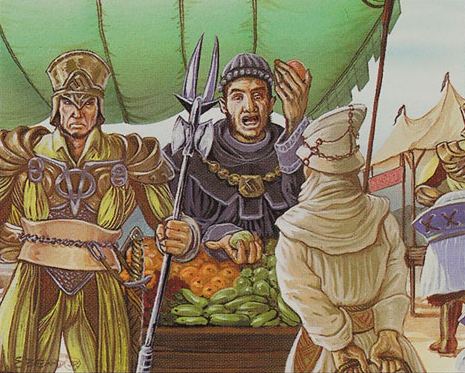



I think you’ve hit a broader theme on markets in that there’s many different ways to intelligently speculate and accrue value. I’m currently reading a book by an author that interviewed successful investors in Canada. They all detail their own perspective, but to a person they all recommend finding a strategy that will keep you interested and fits your personality. Like, if you are interested in fast paced investing then you shouldn’t be trying to identify deep value opportunities that might take years to show gains.
I always like to think big picture and how micro details affect the macro economy on MTGO. It’s my interest and curiosity in this regard which allowed me to find my niche.
Knowing yourself seems to be a key to this idea, and I think you’ve articulated the same thing here.
Thanks Matt, much appreciated, I think you’re definitely right. Perhaps you could share the name and author of the book?
I think that it’s important that in addition to your own interests you pay attention to your surroundings and figure out what works well for you, but also what your market wants and how they best line up.
The book is Market Masters by Robin Speziale.
https://www.amazon.ca/Market-Masters-Interviews-I…
Thanks for sharing!